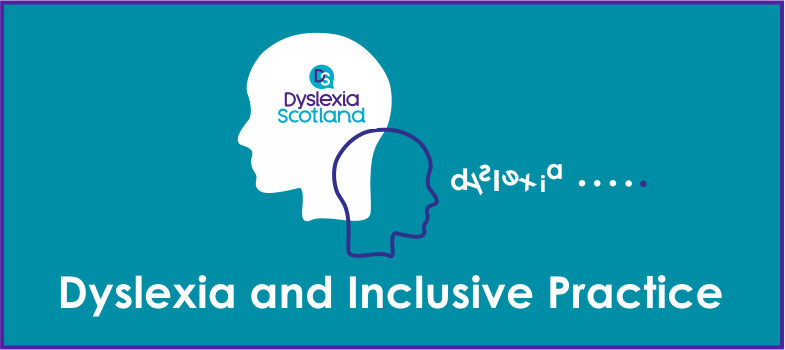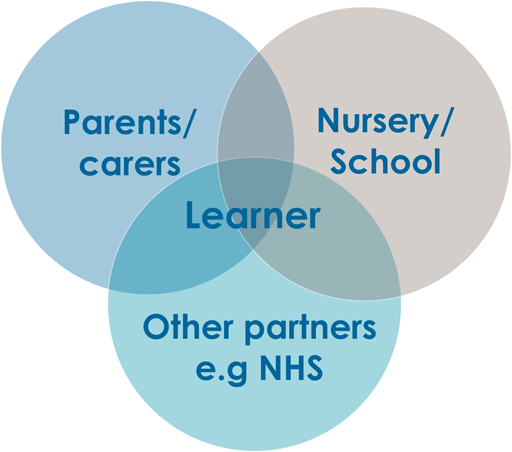1.5 Effective communication
Module 1, Section 1.6 Recap
Effective communication, respect and partnership working are key requirements between schools and families. They are essential in supporting appropriate and effective identification, planning and monitoring of literacy difficulties and dyslexia.
The GTCS suite of professional standards provides a framework for teachers to examine, inform and continually develop their thinking and practice. The core area of ‘Professional Values and Personal Commitment’ highlights the following as fundamental to being a teacher:
- Social justice
- Trust and respect
- Integrity
- Professional commitment
These, along with many aspects of Professional Knowledge and Understanding and Professional Skills and Abilities also articulate well with the roles and responsibilities of practitioners for effective communication with learners, parents and colleagues so that they:
- are engaged in the holistic/collaborative identification process
- understand what is happening, including the time scales and are kept informed if there are changes.
The importance of effective communication should never be underestimated. Figure 8 highlights those who should (highlighted in Bold), and also who may if appropriate be engaged in effective partnership working. It must be appreciated that there may be other additional people involved if required, depending on the child or young person’s individual needs. The lack of effective and transparent communication can be one of the causal factors of complaints which are raised against a school or local authority. Poor communication can result in misinformation and a misunderstanding of what support and approaches should be taken or should be in place by both staff and parents. Building strong relationships will make it easier to solve disagreements informally.
Legislation is in place to support parents, children and young people to:
- request specific assessments which must begin within a set time frame
- access free advocacy and mediation services
- have access to assessments and information documented about the learner
1.4.1 Responsibility of all – Health and Wellbeing

